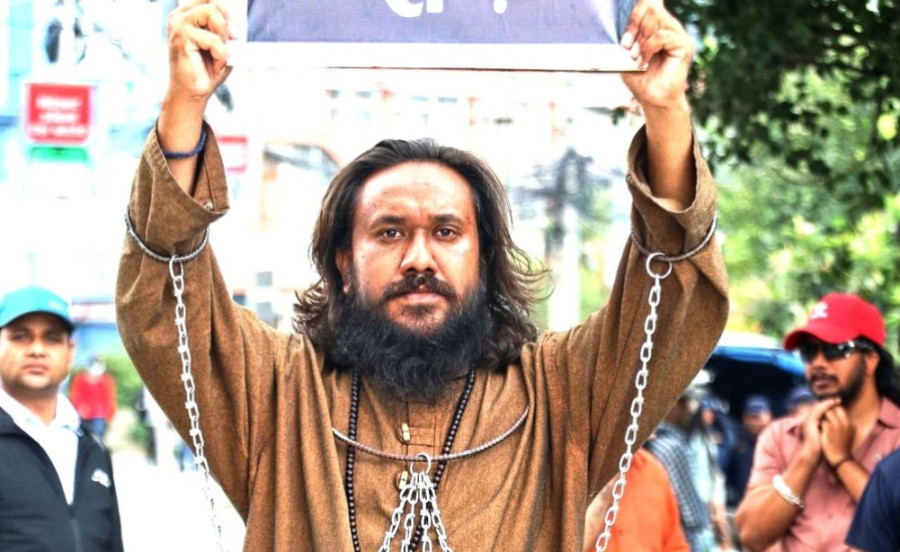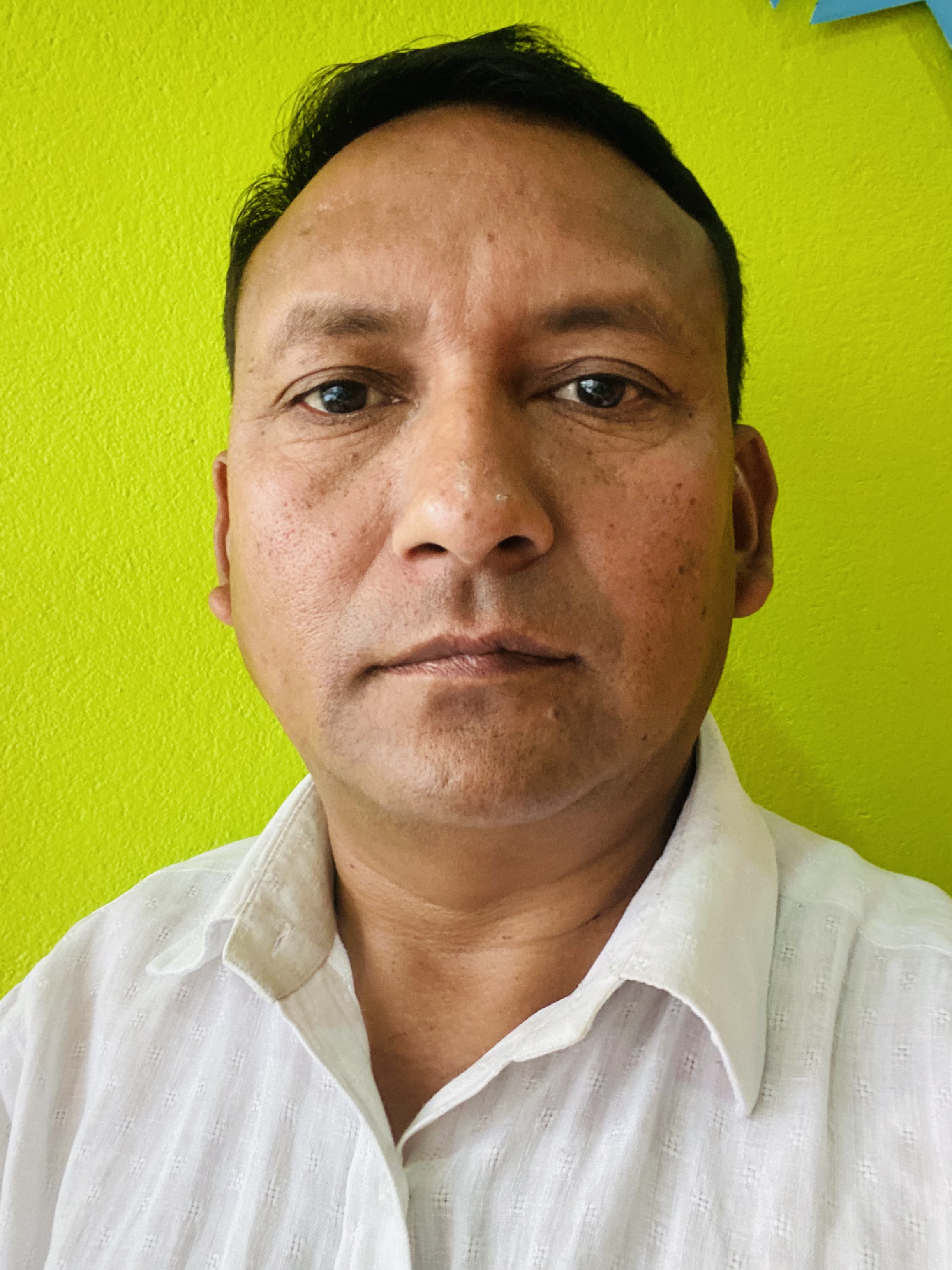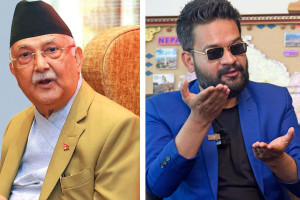Columns
PM Karki’s embarrassing Sunday
Why did the government propose Sunar if he was a wanted suspect in a court of law?
Mitra Pariyar
It has been barely a month and a half since the formation of “the government of the street” led by former Chief Justice Sushila Karki. Perhaps it’s too early to evaluate its performance and count its achievements. Let’s not criticise the confidence and competence of the individual ministers either; let them work. But so far, PM Karki and her Cabinet have proven highly inept—and dangerously so.
The Karki team seems to lack a sense of purpose and direction in such a sensitive time. It seems unable to recognise its priorities and act with integrity and seriousness. This drawback was evident on Sunday as the premier appointed two new ministers out of the four recommended by influential Gen Z groups.
The Khagendra Sunar drama
Last Sunday, October 26, national news headlines were dominated by one Dalit activist: Khagendra Sunar. And for all the wrong reasons. Sunar was scheduled to be appointed as the minister for labour that day.
PM Karki has been criticised for taking a long time to fill her Cabinet. Previously, a few names had been suggested, from among the younger generation, some of whom caused quite a controversy. Some candidates’ citizenship was questioned; others were attacked for other reasons.
Sunday morning, as Sunar’s name appeared on the list of new ministers to be sworn in the same day, many in the Dalit community celebrated. He is a well-known figure (and from the highest caste in the caste hierarchy within the hill Dalits), who has been very articulate against the humiliation of and violence against Dalits.
Dalits were happy because two ministers from their community would be in the government. Madan Pariyar, the agriculture minister, is already there. It would also be, some hoped, a perfect balance. Pariyar is a down-to-earth, intellectual and soft-spoken person, whereas Sunar is loud and angry. Together they could—Dalits hoped—be able to contribute to the Dalit cause significantly.
Soon, however, their hopes were dashed. There was an outpour of anger from many people on social media, who accused Sunar of many criminal and immoral acts. His two arrest papers issued by the courts in Surkhet and Kavrepalachowk districts became viral. Sunar’s alleged wrongdoings dominated headlines throughout the day.
Sunar was accused of, inter alia, fraud, polygamy, cyberbullying and defamation of court. It emerged that the Nepal Police had indeed given evidence of the pending criminal cases against him to the government.
However, PM Sushila Karki and her advisers apparently overlooked the police report and planned to secretly push ahead with Sunar’s appointment. Of late, he had vociferously spoken in favour of PM Karki and against the mainstream parties. His terrific admiration of PM Karki was somewhat confusing, as she’s not known to have done anything substantial in favour of Dalits. But the sudden overwhelming media revelations, headline after headline, forced her to ditch him.
The situation became so embarrassing that, barely an hour or two prior to taking an oath of office, Sunar was dropped. The PM’s office issued a statement declaring that Sunar had never been selected as a candidate in the first place. This was a lie as the office of the President revealed the names of the four appointees, including Sunar.
The people campaigning against his appointment were obviously happy. But it came out as a form of humiliation for many Dalits. Why did Karki kick Sunar out in the last minute? Why hadn’t she checked his background well in advance?
These are serious and legitimate questions. These are the questions that not just Dalits but everyone must ask. Where is the transparency and accountability pledged by the Karki Government? Why did it accept Sunar if he were indeed a wanted suspect in a court of law? Were the Gen Z activists proposing his name guided by ulterior motives?
The Gen Z movement was unleashed with two main agendas: End of corruption and good governance. One cannot imagine the above if the government formed by the Gen Z activists—both seen and unseen—behave in this manner.
Sunday was one of the most embarrassing days for both Gen Z activists and the Karki government. In the words of Yogesh Bhattarai, a prominent UML figure, the government turned itself into a “laughing stock” with this fiasco.
Shrestha refuses
The Government embarrassment on Sunday didn’t end with Khagendra Sunar. Another name proposed by the Gen Z, Ganapati Lal Shrestha, refused to join the Karki government. Given his expertise and experience, he was initially offered the Ministry of Culture, Tourism and Civil Aviation. But he was transferred to another ministry—again, in the last minute.
Afterwards, Shrestha publicly voiced his anger at PM Karki’s unprofessional appointment. He felt let down, as he’d wanted to make a real contribution, especially in the preservation and promotion of heritage. Most prominently, he was angry at a certain “hidden power” that probably forced PM Karki to change her mind at the eleventh hour.
This is exactly the question everyone has been asking for some time now. This government cannot be trusted unless we know exactly who is in charge, who commands PM Karki. Who are those hidden or underground players who thus far dare not reveal themselves?
For this government to succeed in its mission, mainly holding the general elections, the main actors of the deep state must be recognised. Their motives and goals must be understood. Their objectives must be clear. Do they intend to return monarchy? Do they secretly plan to create a Nepali version of Zelensky or an elected benevolent dictator, using votes from people working abroad?
The President has said repeatedly that our democratic system is under threat, and urged parties to contest elections to mitigate that threat. But he, too, hasn’t spelt out who is posing such a threat. It is difficult to imagine that a highly disorganised cluster of young people under the banner of Gen Z is causing such a threat.
To conclude: As further evidenced by the recent fiasco vis-à-vis the appointment of ministers, ineptitude has been a big issue with the current government. I suspected this might be largely due to the lack of coordination between the Gen Z activists and PM Karki. All we see thus far is the tip of the iceberg. She must make every effort to make her government transparent, accountable and professional—even though dealing with a Cabinet full of non-politicians in itself is a massive challenge.




 10.12°C Kathmandu
10.12°C Kathmandu















